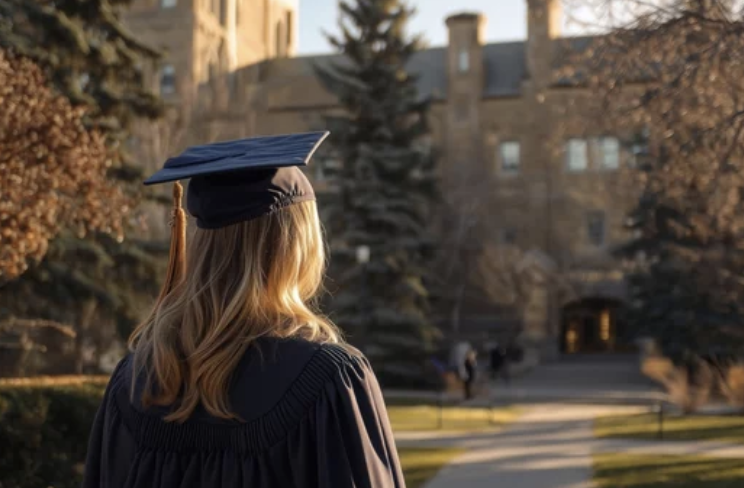
It’s graduation season, and you know what that means: For the next six weeks, high school and college campuses will be clogged with people stopping in inconvenient places, staring off into the middle distance, misty-eyed.
They’re only sort-of present in those moments—part of them is visiting the past. It’s involuntary, likely to happen when you return to a place where you did some of your most important growing up, (an alma mater, for example), or you find yourself gazing out on a sea of young people ending a big chapter of their lives and beginning a new one. These are moments almost guaranteed to clobber us with nostalgia.
Nostalgia, and the stories it inspires, get a bad reputation, because so often they don’t have much point to them. It’s your mom driving you around her hometown, pointing to a house that looks exactly like every other house, and saying “That’s where your grandma grew up.”
Lately, though, I’ve been thinking about how nostalgia is actually really useful to writers, because the magazine of my own alma mater asked me to write an advice story on how to turn your college memories into actual stories.
Basically, they paid me to indulge my own nostalgia while advising writers on how to make it matter.
Along the way, I learned some things about nostalgia that are downright fascinating:
- Humans are (as far as we know) the only species that can feel nostalgia for the future.
- Nostalgia is contagious — you can spread yours to people, even if they don’t share the memory.
- It cultivates empathy.
- It makes us likely to seek out connections to other people. We are even more likely to ask for help.
Most importantly for writers, when we sink into nostalgia, far from being a self-indulgent waste of time, we’re making meaning of our past.
And all of that—the warm fuzzies, the vivid details of memory, the empathy, the reaching out to old friends, the meaning—all of it can be used to create more vivid, more emotional, more meaningful stories.
“Nostalgia is a valid, honorable, ancient human emotion,” wrote the novelist Michael Chabon. “Most truly and most meaningfully, [it] is the emotional experience—always momentary, always fragile—of having what you lost or never had, … of sipping coffee in the storied cafés that are now hot-yoga studios.”
Most of the memories that flood us with nostalgia involve other people, according to researchers. Which means that when you explore why some memories carry you away while others don’t, you can better understand your relationships at the time, both to the people in your immediate orbit, as well as to humanity more widely.
Take this nostalgia-inflected story, “You Still Wouldn’t Trade It For Another Lap Around” by Abby Alten Schwartz. Graf after graf reads a lot like this one, memories of her childhood interwoven with the experiences of others her age.
At a party the summer after you graduated, you got high and turned to your friends and said, “Do you ever think about nuclear war?” and then you all busted out laughing and for years after that someone would bring it up and it still cracked you up in an embarrassing way. But really, the threat of being wiped out suddenly (or worse, surviving) was the biggest danger you faced next to strangers or hitchhiking or Ouija boards at slumber parties.
Alten Schwartz shares that moment with her friends at that graduation party, but the vulnerability in it, when she shared her fear, connects her memory and her story to many others in her generation, it makes the story more meaningful, because it’s no longer a “do-you-remember?” but a story of growing up under a shadow, and surviving.
OK, writers, your turn. I’ve put together an exercise for you to stir and hopefully harness your nostalgia. Don’t be afraid to indulge in it. Remember it not only gives you grist for stories, it can help make you a better person.

Kelly Caldwell
Dean of Faculty


